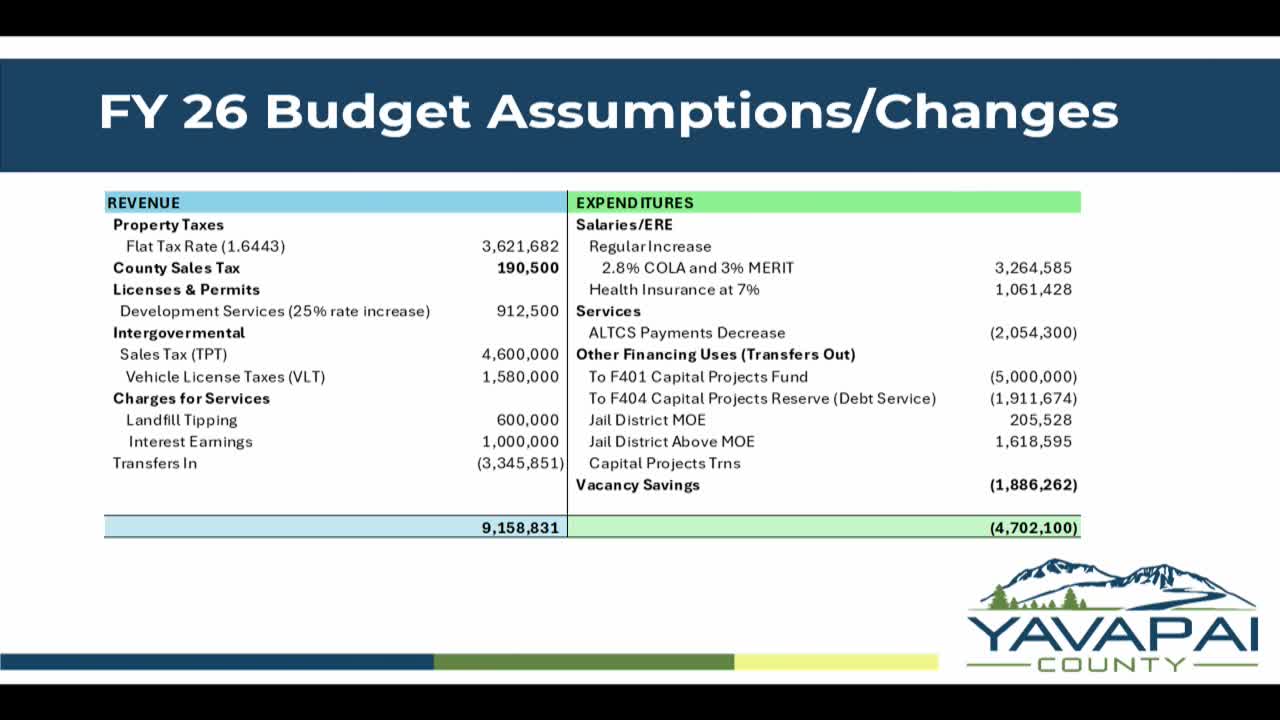Article not found
This article is no longer available. But don't worry—we've gathered other articles that discuss the same topic.
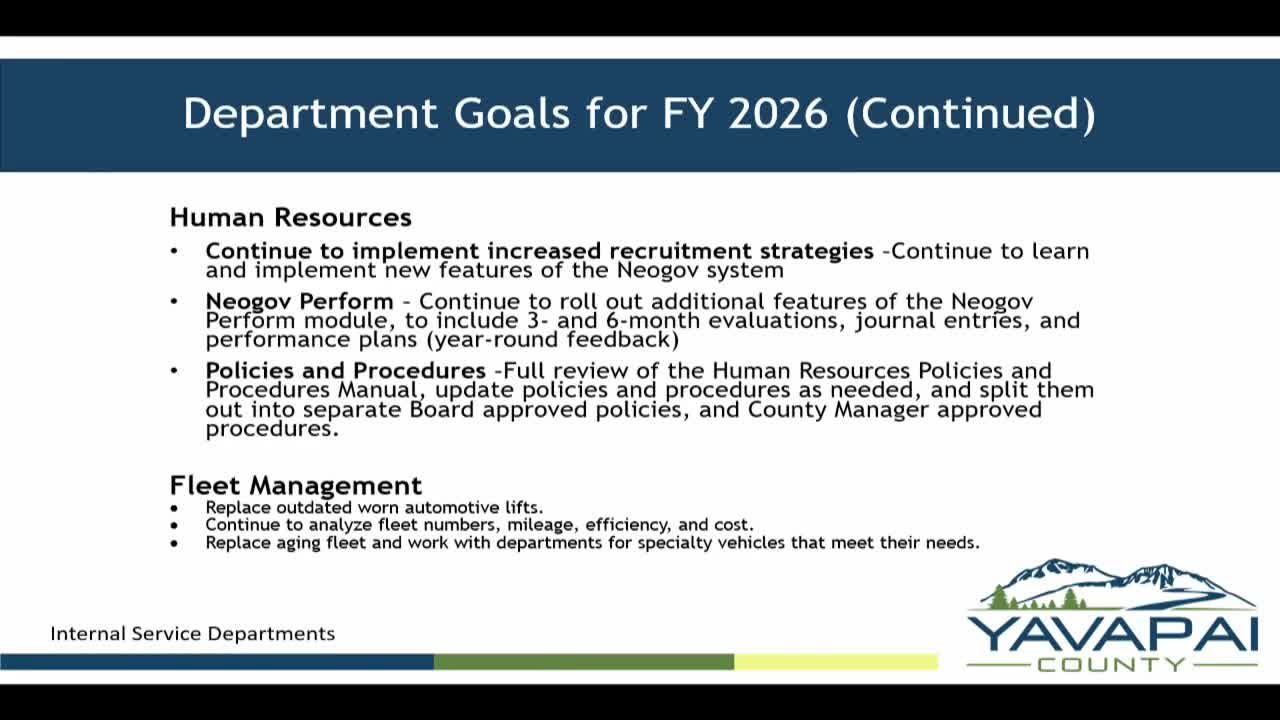
Public Works seeks expanded half‑cent spending, grant matches and road program catch‑up after years of deferred projects
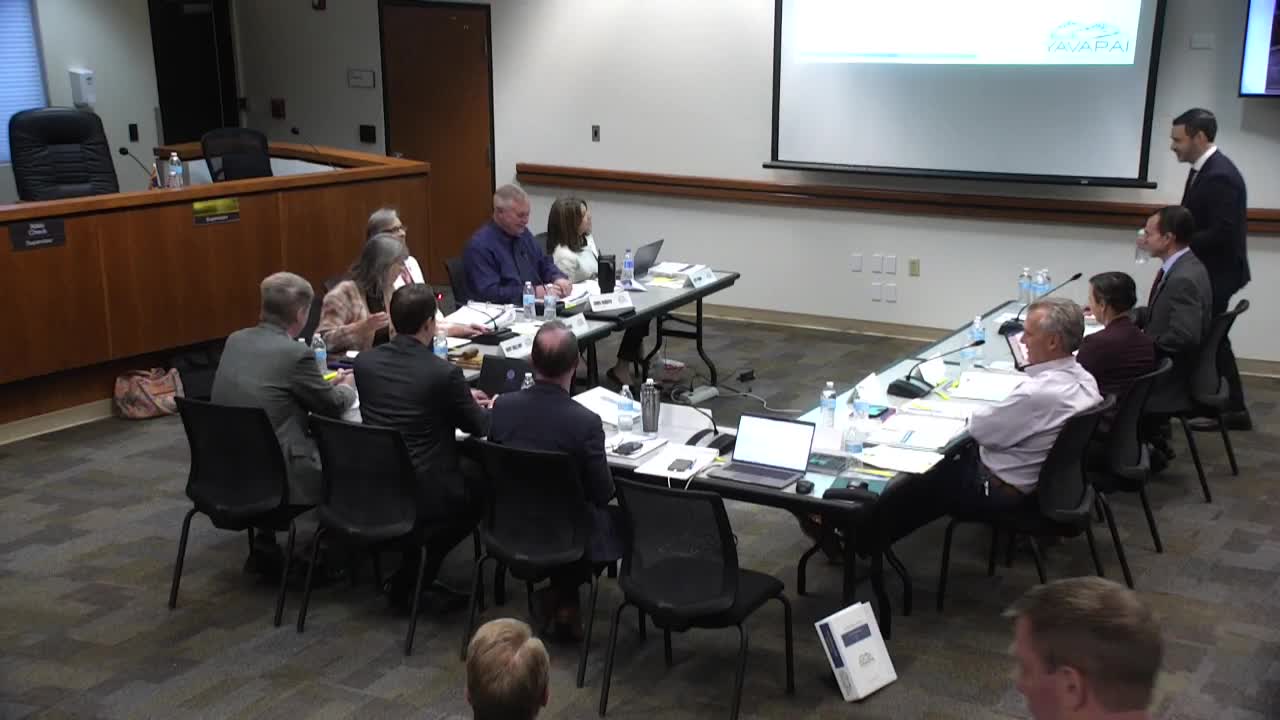
Facilities seeks project manager, safety upgrades and tighter procurement coordination
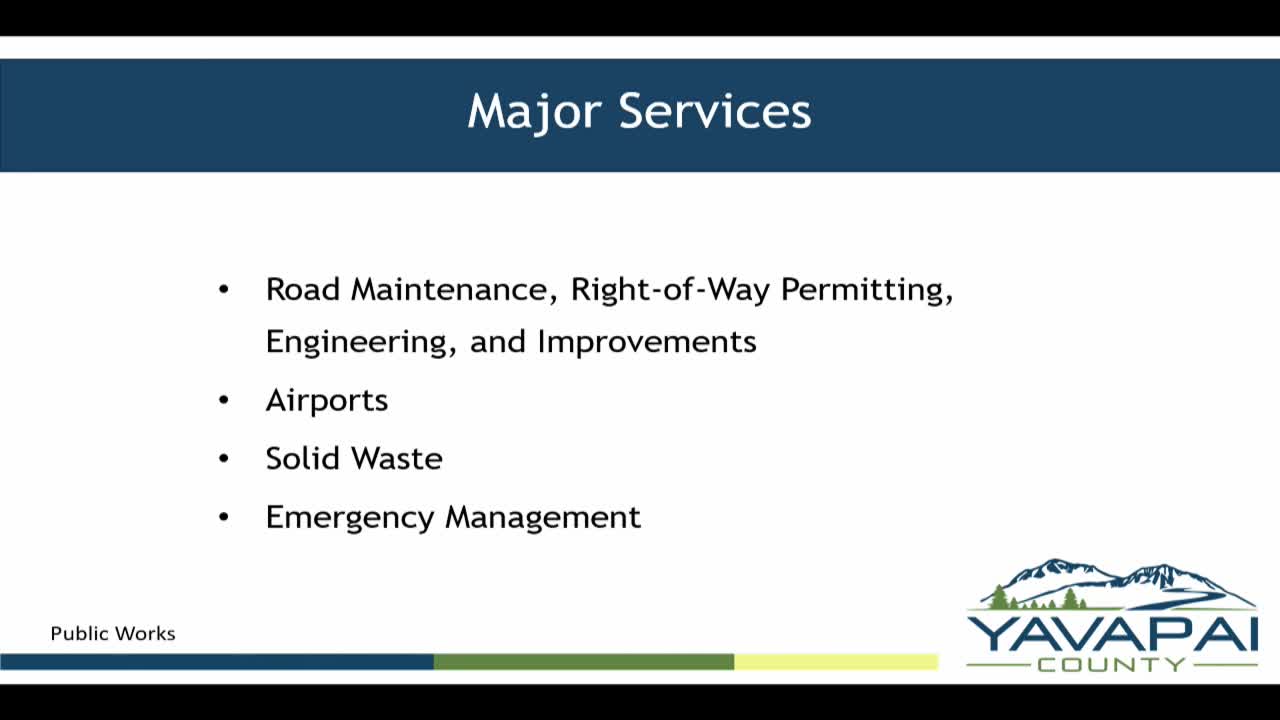
Solid-waste staff propose transfer‑station fee increases and new tire‑fund purchases as disposal costs rise
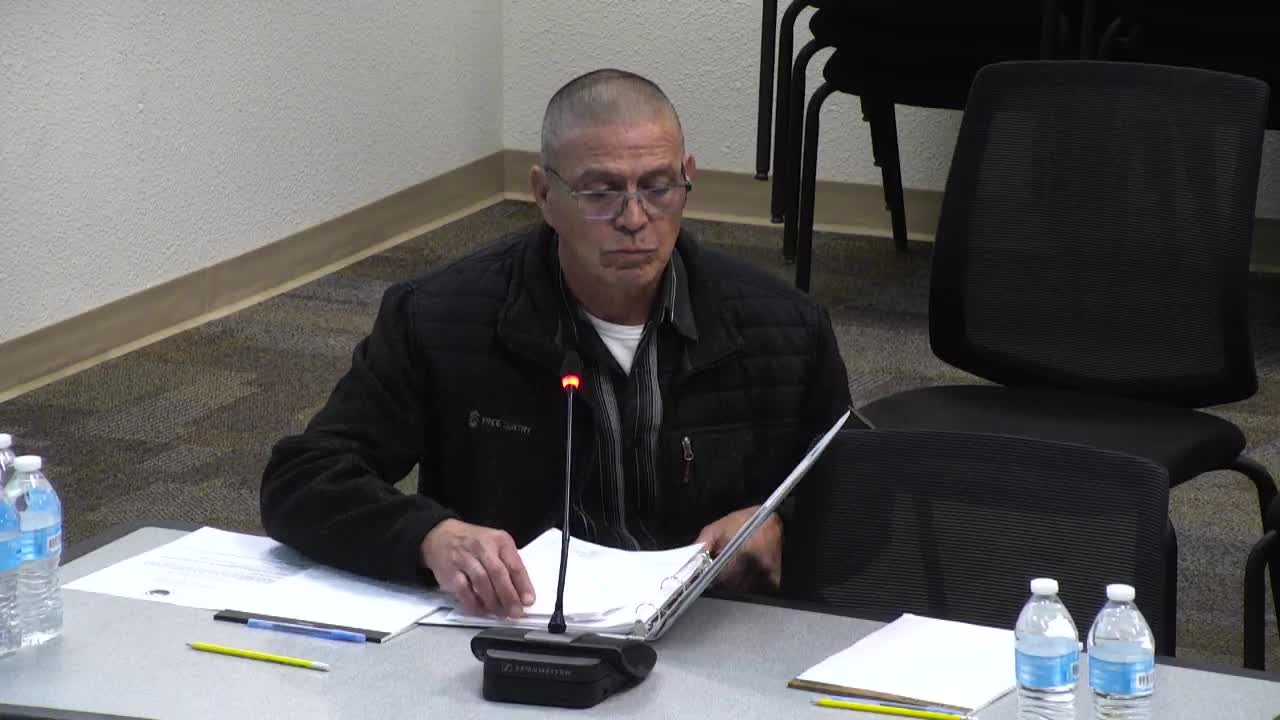
Development Services reports faster permit reviews, Home of My Own completions and a full zoning code rewrite
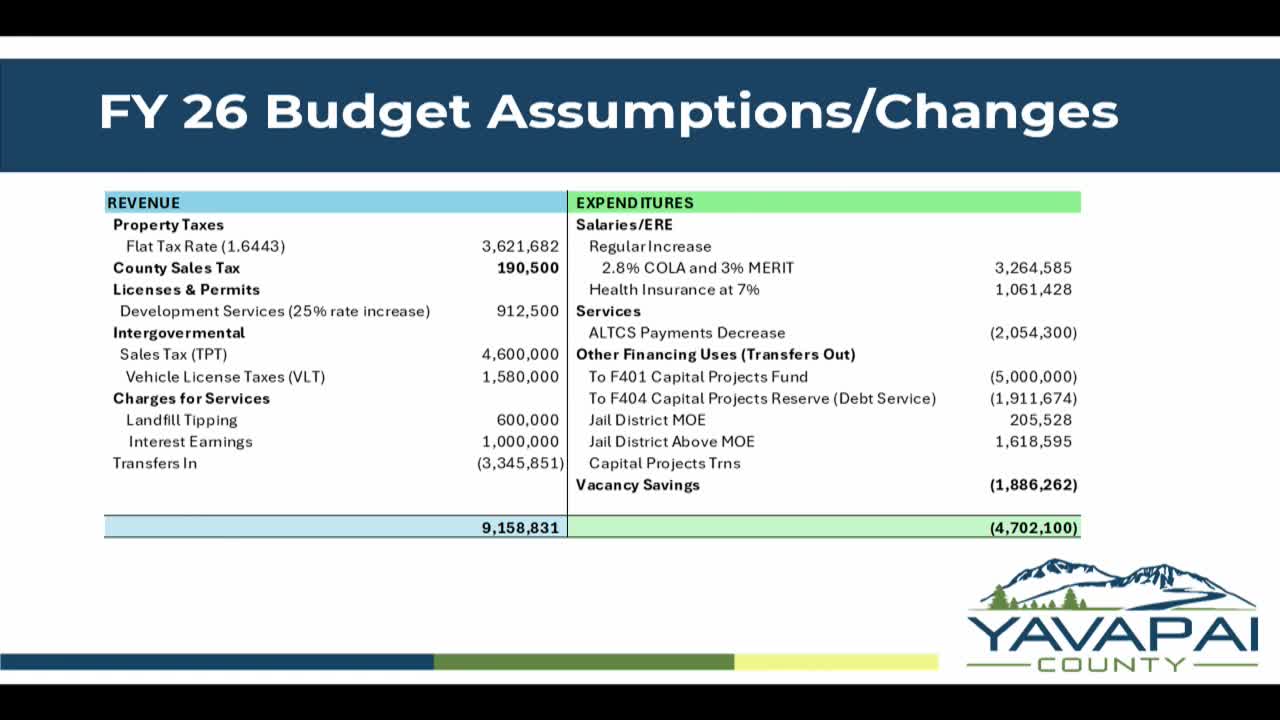
Supervisors told jail district transfers and medical costs keep county on alert despite debt payoff
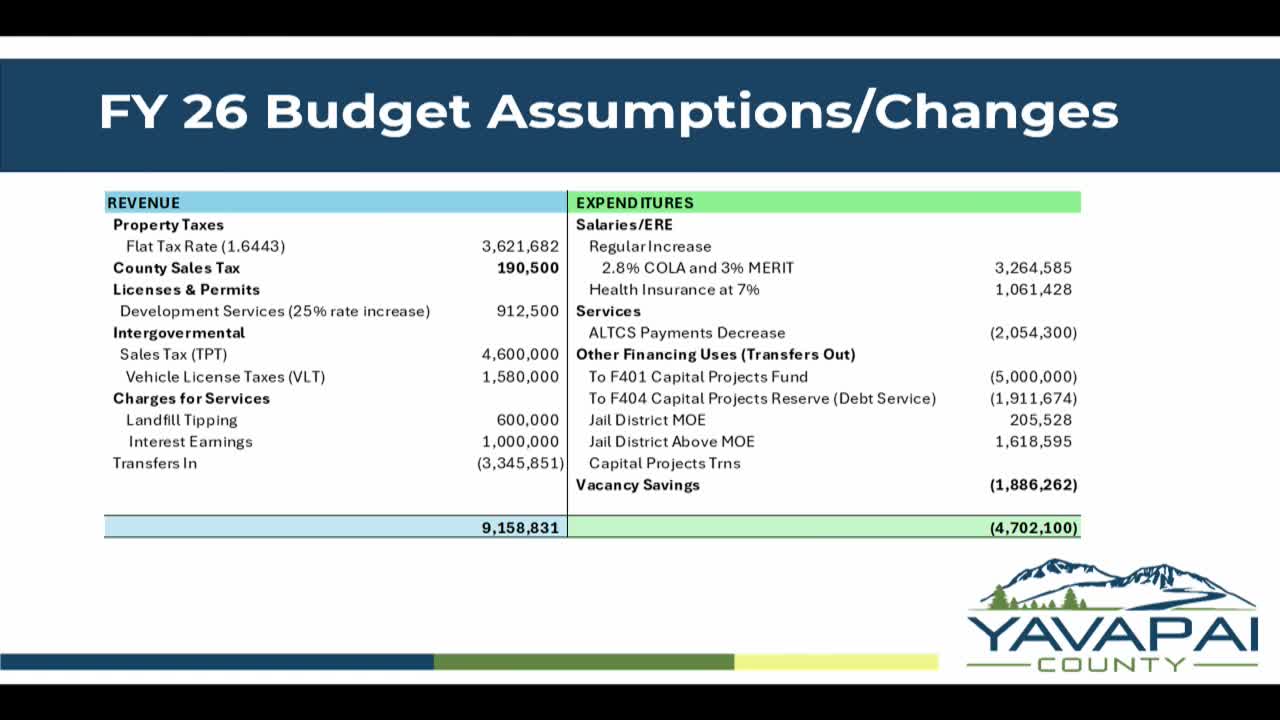
Board hears proposal to continue COLA and merit increases, and a 7% health-insurance cost rise
